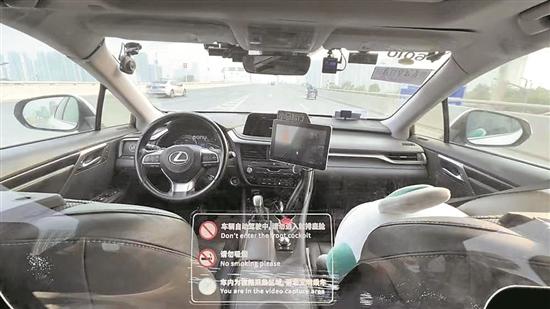
Recently, various local governments have been actively promoting the commercialization and regulation of smart driving, making unmanned driving a hot topic of discussion. On July 9th, Lin Jian, spokesperson of the Ministry of Foreign Affairs, responded to the global popularity of "China Travel," noting that foreign tourists' "immersive" experiences and photos showcased China's vibrant development. He praised "Cyber Wuhan" for its futuristic Optics Valley Suspended Monorail Line and driverless cars. As unmanned driving gradually enters the public eye, it brings with it a profound transformation marked by both challenges and opportunities.

Guangzhou began the road testing of unmanned vehicles on public roads as early as the end of 2017. In 2018, cities such as Beijing, Shanghai, Guangzhou, and Shenzhen issued guidelines and management measures for intelligent and connected vehicles, followed by more cities joining the push for autonomous driving. According to incomplete statistics, 51 cities nationwide have introduced pilot demonstration policies for autonomous driving, accelerating the expansion of its application scenarios.
The innovation in autonomous driving technology is driving the transformation of cars from traditional single-purpose vehicles to mobile smart platforms, restructuring the industrial chain and fostering the rise of emerging industries.
Before driverless vehicles became commonplace, public discussion on autonomous driving was relatively sparse, apart from industry professionals. This situation changed with the large-scale operation of Apollo Go in Wuhan, sparking unprecedentedly intense discussions on autonomous driving.
Since the beginning of 2024, Apollo Go has been accelerating its deployment in Wuhan, igniting heated debates. Since May, some Wuhan residents have complained that autonomous vehicles "drive slowly" and "stop moving," exacerbating traffic congestion in the city. Additionally, there have been online claims that Wuhan taxi drivers are unhappy with the deployment of Apollo Go, feeling that it threatens their livelihood.
Many industry experts attribute the former issue mainly to the need for further refinement of autonomous driving technology. Regarding concerns about driverless cars taking away jobs from taxi and ride-hailing drivers, Pan Helin, a member of the Expert Committee for Telecommunication Economy of the Ministry of Industry and Information Technology of the People's Republic of China, believes that at this stage, driverless vehicles do not pose a challenge to traditional taxis. He argues that driverless taxis are still more of an experiential project and have not yet formed effective transport capacity. The main competition for taxis comes from within the ride-hailing and taxi industries themselves. Pan Helin contends that driverless vehicles are an inevitable trend in technological development. From an overall economic perspective, they can bring greater economic benefits and value increments, such as the construction of vehicle-road coordination systems and the growth of the automotive industry's output value driven by in-car entertainment facilities and vehicle intelligence.
Gu Dasong, Executive Director of the Research Center for Traffic Rule of Law and Development of Southeast University, stated that in the long run, autonomous driving might reduce the demand for traditional drivers such as taxi and freight drivers to some extent. However, this replacement does not simply mean job losses but rather an upgrade in employment structure, promoting a profound transformation of the labor market.
Source :Yangcheng Evening News
在挑战与机遇中前行的无人驾驶
近日,各地政府关于智能驾驶的商业化和规范化动作频频,无人驾驶正成为街头巷尾热议的话题。7月9日,外交部发言人林剑对近期“中国游”在全球掀起热潮进行回应,称外国游客“沉浸式”的“随手拍”展现了中国发展的勃勃生机,点赞了“赛博武汉”充满科技感的光谷空轨和无人驾驶汽车。逐步走进公众视野的无人驾驶,背后也伴随着技术挑战与机遇并存的深刻变革。
早在2017年底,广州就开始有无人驾驶车辆在公开道路上进行路测。2018年,北上广深等城市陆续发布智能网联汽车的相关指导意见和管理办法,随后更多的城市开始发力自动驾驶。据不完全统计,全国目前已有51个城市出台自动驾驶试点示范政策,不断加速拓展自动驾驶的应用场景。
自动驾驶技术创新推动下,汽车将从传统单一的交通工具,向移动智能平台转变,带动产业链的重构和新兴产业的崛起。
无人驾驶车辆真正驶进寻常百姓家之前,除了相关行业从业者外,民间关于自动驾驶的讨论声音并不算多。这种情况因萝卜快跑在武汉开始规模化运营而发生变化。
今年以来,萝卜快跑在武汉加速落地步伐,由此激发的无人驾驶相关讨论空前激烈。自5月份起,便有武汉市民吐槽自动驾驶车辆“开得慢”“停滞不动”,武汉交通拥堵情况因此加剧;此外,网上也有声音称,武汉的出租车司机对萝卜快跑的投放感到不满,认为其是在“抢饭碗”。
对于前者,多位业内专家分析认为,其背后的原因可能主要是自动驾驶技术仍需进一步完善。而针对无人驾驶是否抢了出租车和网约车司机的饭碗、是否会取代司机等问题,工信部信息通信经济专家委员会委员盘和林认为,现阶段无人驾驶汽车尚不会对传统出租车构成挑战,因为无人驾驶出租车更多还是一项体验项目,尚未形成有效运力。出租车的竞争压力主要来自网约车和出租车行业内部。盘和林认为,无人驾驶汽车是科技发展的大势所趋。从经济全局上看,无人驾驶汽车能够带来更多的经济效益和价值增量,如车路协同建设,车上娱乐设施和车辆智能化带来的汽车产业的产值增长等。
东南大学交通法治与发展研究中心执行主任顾大松表示,长期来看,自动驾驶也许会令行业对出租车司机、货运司机等传统驾驶员的需求在一定程度上减少。然而,这种替代并非简单的岗位消失,而是就业结构升级,将促进劳动力市场的深刻转型。
文 | 羊城晚报记者 沈钊
译 | 赵凡
-
Twelve international transit passengers embark on a free one-day tour in Guangzhou
2024-07-12 22:15:00 -
"Apollo Go" Robortaxi opens passenger tests in 11 cities: are driver jobs at risk?
2024-07-12 22:15:04 -
Photos | Tapo Temple Fair in Foshan opens
2024-07-12 22:15:09 -
Poster | China's foreign trade reaches new high in H1
2024-07-12 22:15:14






